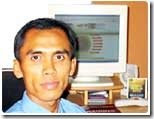Put the best concepts, tools and techniques available for multi-project management to work for you! Discover how to balance resources across multiple projects and minimize risks while improving performance. Find out the common characteristics of successful multi-project environments—such as ensuring communication from top-to-bottom and bottom-to-top…encouraging change…and establishing accountability. How You Will Benefit - Recognize the best practices in project management and how to incorporate them into your operation
- Discover how to establish an environment that supports effective multi-project management
- Optimize resources across projects and other business processes
- Support your organization’s core values and strategic direction
- Learn how to provide for continuous project improvement
- Discover the benefits of a Project Management Office,steering committee and gate review teams
What You Will Cover Primary Concepts for Managing Multi-Projects - Objectives of multi-project management
- Best practices for MPM success
Establishing an Environment for Success - Best practices within the industry and within the class
- Organizational structures that support MPM
How the Program Management Office Relates to Managing Multi-Projects - Managing inter-project coordination points
- Multi-project resource leveling
- Developing project managers
- Program/portfolio reporting
- Constructing a PMO
The Project Management Business Process - Business process basics
- Core concepts of improvement
- The project management businessprocess: gate and process reviews
Management by Metrics - Characteristics of successful metrics
- Collecting and reporting on the data
- Establishing a baseline and target goals
- Multi-project applications of earned value
- Applying balanced scorecard to MPM
- Queuing theory and basics
- The great project conundrum
- Resource utilization in a multi-project environment
- The theory of constraints
- Multi-project (program) critical path
Summary: Achieving Best Practices in Multi-Project Management - Consistency in project management practices
- Cultural characteristics needed for MPM
- Organizational responsibility
Who Should Attend Project and program directors and managers, department heads, senior managers and anyone who is trying to balance resources across multiple projects.
Extended Training Description Learning Objectives - Recognize the Best Practices in Project Management and How to Incorporate Them into Your Operation
- Discover How to Establish an Environment That Supports Effective Multi-Project Management
- Optimize Resources Across Projects and Other Business Processes
- Support Your Organization’s Core Values and Strategic Direction
- Learn How to Provide for Continuous Project Improvement
- Discover the Benefits of a Project Management Office, Steering Committee and Gate Review Teams
Primary Concepts - Understand Best Practices and the Tiers That Constitute Best Practices
- Understand How Best Practices Are Promulgated between Industries
- Learn Core Concepts of Project Management That Migrate to Multi-Project Management
- Know Your Own Targets in Multi-Project Management
- Understand the Tools Necessary to Establish an Environment That Supports Multi-Project Management
Establishing an Environment for Success - Determine Characteristics of Successful Environments
- Establish an Environment for Success
- Implement Organizational Structures That Support MPM
- Establish Roles and Responsibilities of Project-Oriented Groups
The Program Management Office - Know the Functions of a PMO
- Know the Construction of a PMO
- Know How to Create a PMO Charter
- Know How to Translate Business Objectives into Project Objectives
The Project Management Business Process - Know the Source of Business Improvement
- Know How to Handle and Encourage Improvement in a Business Environment
- Understand the Purpose and Characteristics of Project Management Methodologies
- Know How to Integrate Project Management with Other Business Processes
- Understand the Purpose and Implementation of Gate Reviews and Other Project Management Processes
Management by Fact - Understand How the Best Companies Apply Metrics to a Business Environment
- Understand Your Skills in Applying Metrics
- Know How to Develop or Enhance Your Own Metrics in Your Own Environment
- Understand the Concepts of a Balanced Score Card
Emerging Techniques - Apply the Following Emerging Technologies in a Multiple-Project Environment:
— Queuing Theory
— The Theory of Constraints
— Project Throttling Techniques
— Scatter Analysis
Developing Your Own Strategy
FOCUS TRACO INDONESIA Management & Technical Training Course Seminar Provider Download 2009 FOCUS Training Catalog |  |
Instructor
Schedule
Venue
| | Novotel Coralia Hotel | | | Bogor |
Tuition Fee
| Rp. | 4.800.000,- | | | per participant, excluding accommodation & tax. |
Registration
| | Send by email -or- fax to: | PT. FOCUS TRACO INDONESIA
Wisma Pakuan, Jl. Pakuan 12
BOGOR – 16143
|


Tidak ada komentar:
Posting Komentar